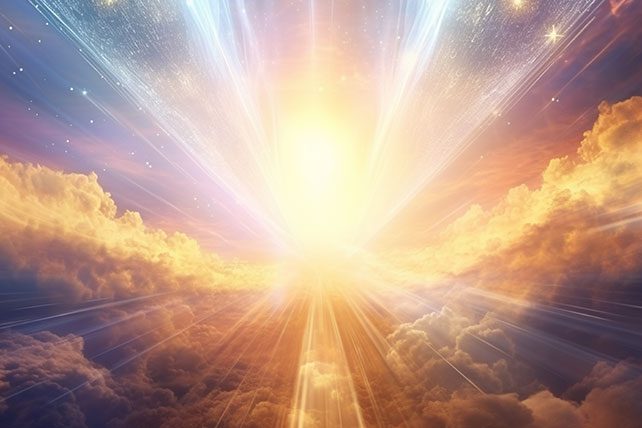In the quest to understand the universe and our place within it, one question has intrigued humans for millennia: “Who created God?” This inquiry touches the very essence of our understanding of existence, creation, and the nature of divinity. From the Christian perspective, the answer is both profound and foundational to the faith.
To Christians, God is the eternal, uncreated Creator, existing beyond the confines of time and space, the Alpha and the Omega, without beginning or end. Let’s delve into the Christian theological explanation of God’s existence, exploring the concept of an eternal God and the implications of such a belief.
The Concept of an Eternal God
Christian theology posits that God is eternal, existing outside the bounds of time and space. This notion is central to understanding the Christian response to the question of God’s origin. God is described as the uncreated Creator, the Prime Mover, and the First Cause. Unlike everything else in the universe, which bears the mark of creation, God stands alone as self-existent, meaning He depends on nothing and no one for His existence.
The Nature of Eternity
To grasp the Christian perspective on God’s eternity, it’s crucial to differentiate between the temporal existence of the universe and the eternal nature of God. Time, as we experience it, is a sequence of events, a measurable continuum that began with the creation of the universe. God, however, exists outside of this temporal frame, in a state of timeless eternity. This eternal nature means God is not subject to the passage of time; He does not age or change because He exists in an eternal “now.”
The Uncreated Creator
The Bible, which is the foundational text for Christians, presents God as the source of all that exists. In the book of Genesis, the creation narrative begins with, “In the beginning, God created the heavens and the earth” (Genesis 1:1), indicating that God was already present before the start of time and creation. This establishes God as the uncreated Creator, the originator of everything that exists, including time itself.
RELATED: Eternity Set in Our Hearts
Addressing the Question: “Who Created God?”
When posed with the question “Who created God?”, Christian theology offers a perspective that transcends human understanding of causality and creation. The question itself is based on the assumption that everything must have a cause or an origin within the confines of time. However, if God is eternal and exists outside of time, the concept of creation does not apply to Him.
God’s Self-Existence
One of the key attributes ascribed to God in Christian theology is self-existence, or aseity. This means that God’s existence is not contingent upon anything else. He is the necessary being that brings all other beings into existence. The Apostle Paul, speaking to the philosophers in Athens, declared, “The God who made the world and everything in it is the Lord of heaven and earth and does not live in temples built by hands. And He is not served by human hands, as if He needed anything, because He himself gives all men life and breath and everything else” (Acts 17:24-25). This highlights the concept that God is self-sufficient, requiring nothing outside Himself to exist.

